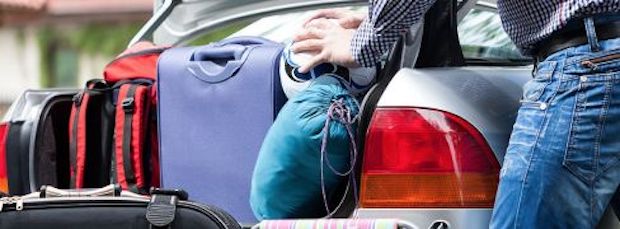Question: Hi Alex, we are planning a viewing trip with you guys soon, as you know, it will be our first property viewing trip to France gulp! do you have any French phrases / terminology we could use so we don't appear to daft to 'the French'?
thanks Judith C.
Answer:
Traveling can be difficult when you combine la fatigue à cause du décalage horaire (jetlag) with a language barrier. Before you ever leave though, making sure all your travel arrangements are in order can prove to be quite difficult as well.
Preparing a trip can take a long time. You might know where you want to go and how you want to get there, but sometimes you just do not have le temps to put it all together!

The first step in la réservation d’un vol (reserving a flight) is looking at votre emploi du temps (your schedule) to see when you can prendre l’avion (take a flight). It can be hard to figure out how to arrange everything when you’re looking at un vol de nuit (a red eye flight) and un décalage horaire (a time difference).
Finding la meilleure relation qualité/prix (the best value for the money) can be hard, especially if there’s un vol at a good price, but it doesn’t fit into votre emploi du temps chargé (your busy schedule)!
While you might not be able to change votre emploi du temps chargé, you can choose your seat, côté couloir ou côté hublot (aisle or window), and le repas (the meal). Airplane food may not be the best, but you can let them know if you want un repas végétarien (a vegetarian meal) in advance.
After spending the time to réserver le vol the next big step is to faire vos valises (pack your bags). Fitting everything you need in une valise (a suitcase) can be the hardest part of la préparation. After stuffing everything into une valise you have to then make sure it meets the requirements of la compagnie aérienne (the airline).
The requirements for le bagage en soute (checked luggage) and le bagage en cabine (carry-on luggage) can change between les compagnie aériennes, but the information is usually easy to find on le site web de la compagnie aérienne (the airline’s website).
After everything is packed all that’s left is getting up at the right time. Once you’re at l’aéroport, it’s best to see if le vol est rétardé (the flight is delayed). If le vol est à l’heure (the flight is on time), the last hurdle is making it through la contrôle de sûreté (the security check) after vous avez enregistré vos bagages (you have checked in your luggage)!
There may be some things out of your control at l’aéroport, but at least you can make sure la réservation is ready and les valises sont faites in advance!
ALSO here’s a list of vocabulary that will help you in France during a viewing trip, although our agents speak English:
Vocabulaire:
Immobilier - Estate Agency
les pièces — rooms (the French don’t use the number of bedrooms as a reference for the capacity of an apartment or house, but rather they count based on the number of habitable rooms, excluding bathrooms and the kitchen)
le loyer — rent
location — rental
la surface — the square footage; area
la maison — house
l’appartement — apartment
le terrain — land
le prêt immobilier — real estate loan, or mortgage
l’impôt immobilier — real estate tax
l’agent immobilier — real estate agent
l’agence immobilier — real estate agency
louer — to rent
acheter — to buy
le bâtiment — the building
le bailleur — the landlord
le bail — the lease
charges (non) comprises — charges (not) included
commission (non) comprise — commission (not) included
le dépôt de garantie — security deposit
meublé — furnished
le propriétaire — the owner
Hope these few words help a little?


Blog submitted by: Alex at The French Property Network - Cle France.